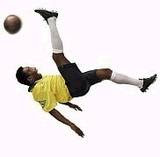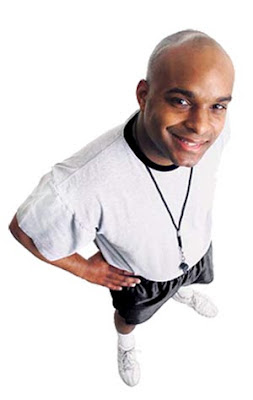As the thrills of the 2012 London Olympic Games still linger in our minds and the excitement of the Paralympics beckons us on to hours more TV viewing, it is worthwhile reminding ourselves of a few facts about the most watched public event in the world.
For a start, the Modern Olympics have very little to do with Ancient Greece. They were actually the idea of a French aristocrat who was inspired by the ethos of the English Public School sports of the Victoria era. Baron Pierre de Coubertin looked to the ‘muscular Christianity’ of Rugby and other Public Schools, and concluded that, “organised sport can create moral and social strength”. The youth of France – indeed the whole world – urgently needed some of this strong medicine, and so he travelled the world gathering support for his vision. De Coubertin called this the ‘Olympic’ idea because he believed that it was the Ancient Greeks who have first developed the core philosophy.
The Baron’s vision was that the Games competition would be only one of a series of activities that take place during the Olympic year. The ‘Cultural Olympiad’ was a marriage of sport and the arts, and included music, dance, visual arts and other wholesome activities. This broader conception of the Olympics continues to exist, despite an almost total lack of interest from the national media … or anyone else.
__________________________________________________
Quick Quiz: Which of the following activities have appeared in the Modern Olympic Games?*
Cricket Solo synchronised swimming
Pistol Dueling Long Jump for horses
Sculpture Literature
Singing Tug of War
* Answers are given at the end of this blog
__________________________________________________
Finally, and most importantly for our purposes, the elite sport aspect of the Olympics is just the outward expression of philosophy of life called Olympism. This philosophy is built on three core values – excellence, friendship and respect – and aims to use the Olympic activities to inspire education and development in all people around the world. De Coubertin wrote:
“Olympism seeks to create a way of life based on the joy found in effort, the educational value of a good example and respect for universal fundamental ethical principles.”
Ultimately, then, the razzamatazz of two weeks in the summer are just the tip of the iceberg. The Olympics are a metaphor for something much bigger and more important, namely the potential of sport and the arts as vehicles for the realisation of human excellence. And excellence can take different forms. As we all know, it can refer to successful performance in high-level competitions. What educationalists might call this the ‘summative’ view! However, as we all know, it’s the ‘formative’ that makes the real difference in the long term. This second form translates as personal excellence, and refers to on-going achievement against personal goals throughout one’s life.
It seems to me that, in launching the Olympics on the world, De Coubertin was offering a powerful metaphor for personal excellence. The champions have their day, and in doing so, elite sport represents a laboratory for the rest of us. We can see before our eyes the effects of someone pursuing excellence. We can learn from their successes and challenges.
Fascinatingly, recent research seems to support this position: there is a great of similarity between the processes used by elite sports people in preparing for the Olympics and those used by the rest of us trying to improve in our own terms. At least, this is the view of Professor David Collins, from the University of Central Lancashire. Prof. Collins is a ‘Performance Psychologist’ and was National Coach for Athletics at the Beijing Olympics. His research suggests that there are ‘champion behaviours’ that can be learnt by children (and by anyone else). Starting with explicit teaching and reinforcement from others, eventually children learn to take responsibility for setting and monitoring their own personal development.
According Collins and his colleagues, champion behaviours include the following:
Goal setting - establishing specific, measurable, achievable, realistic and time-targeted goals.
Performance evaluation – regularly assessing your performance against your goals.
Imagery – going through an event or activity in your mind, using all of your senses, including sight, hearing, smell, taste, touch, and movement to recreate performance.
Planning – articulating the steps necessary for on-going improvement.
Commitment and role clarity - learning to understand and accept your responsibilities with the group.
Focus and distraction control – remaining focused, despite pressure or failure.
Evaluating and coping with pressure – managing stress and learning to use it for positive purposes.
They have found that each of these behaviours can be learned, and they go further. They argue that all children should be taught the skills, so that all of them have at the skills and behaviours of champions at their disposal. Then, if they choose to aspire to excellence, they will have the psychological foundations necessary.
The most fundamental requirement of any attempt to develop excellence is the simplest: practice. Forbes magazine summarized the view of many researchers like this:
“The best people in any field are those who devote the most hours to what the researchers call ‘deliberate practice’. It's activity that's explicitly intended to improve performance, that reaches for objectives just beyond one's level of competence, provides feedback on results and involves high levels of repetition.”
It is quite easy to find support for this view among those who have excelled in their work. For example, here is the actor Will Smith:
“I’ve never really viewed myself as particularly talented. I’ve viewed myself as slightly above average in talent. And where I excel is ridiculous, sickening, work ethic. You know, while the other guy’s sleeping? I’m working. While the other guy’s eatin’? I’m working. While the other guy’s making love, I mean, I’m making love, too. But I’m working really hard at it,”
And here is the genius footballer Pele:
“Everything is practice.”
Famously, some studies examining expert performance have found that a minimum of 10 years, or 10,000 hours, of sustained practice appears to be a necessary. But not just any practice will do. According to Dr K. Anders Ericsson, the ‘expert on expertise theory’, the key is ‘deliberate practice’, which is done with the specific goal of improving performance, is effortful and attention-demanding, is not necessarily enjoyable, and does not lead to immediate social or financial rewards. So, according to Ericsson’s expertise theory, every athlete at the top level has invested huge amounts of high quality practice into their sport. The same can be said of professional musicians, chess grandmasters, and leading scientists.
There are many things about Ericsson’s theory that are admirable, not least his attempt to differentiate between practice and deliberate practice, and his corrective of the default position of sport scientists to explain every phenomenon in terms of biology. However, there are problems too. One is the status of the magical 10,000 hours rule. As a metaphor, it works quite well. But the briefest perusal of the careers of champions (including those at the 2012 Games) reveals that 10,000 hours is not the threshold value it is often claimed to be. Some champions have managed to excel in their sport remarkably quickly (such as the Olympic Gold Medalist HeatherStanning or the Ironman goddess Chrissie Wellington), whilst others have taken much, much longer to succeed at the top (such as almost every Golfer). Also, the portrayal of deliberate practice – hours and hours of exhaustive and boring repetition) simply does not match the accounts of most champions.
My own research with elite sports people and dancers has provided some detail to the understanding of deliberate practice. The figure below shows three of the key characteristics.
Supported Learning - It is sometimes said that practice does not make perfect; practice makes permanence. A task that is repeated for an extended length of time becomes progressively more automatic and unconscious. This is fine if the task being learned is quite simple and done correctly, but if not, practice can cement ineffective skills. This is why feedback is so important for learning, as it nudges the performer back to proper form. This is also why teachers and coaches are vital to high quality learning. They guide, direct, and correct practice.
Mindful Learning - An second problem with any repeated task is that is can quickly become boring. The psychologist Ellen Langer calls this mindlessness, and suggests that it is a barrier to motivating, effective learning. Mindfulness, on the other hand, occurs when the individual is actively involved with task, constantly makes small changes and variations, and is open to new ideas. Langer describes this mindset like this:
“Mindfulness is a flexible state of mind in which we are actively engaged in the present, noticing new things and sensitive to context.”
Our studies have lead us to conclude that mindful learning is a powerful component of personal excellence.
Contextual Learning - The third factor is probably the most important from the point of view of effective learning: learning that reflects the real context of performance. In other words, contextual learning is learning that is designed so that learners can carry out activities and solve problems in a way that reflects the nature of such tasks in the real world. Research supports the effectiveness of learning in meaningful contexts. This means that the best way to learn to play cricket is to play a lot of cricket games; and learning to play the piano happens when learners play music. This is especially worth emphasizing, as decontextualised practice is extremely popular in many activities, especially in education and sport, where drills often take up a great deal of time in sessions. Research suggests that such activities are mostly valueless.
The implication of these ideas seem clear: practice is not enough. Excellence requires high quality learning experiences that are characterized by meaningful, attentive practice supported by great teachers or coaches. This is a necessary condition of excellence.
Taken together, these strands of research suggest that the achievements of top sports people reflect fundamentally similar processes to those used by the rest of us as we battle with our own pursuits of personal excellence. There is nothing magical about Olympic performance; it simply shows what is possible if practices that are available to all of us are taken to extremes.
So, Baron Pierre de Coubertin’s early insight seems to have been right. The glory and spectacle of the Olympic Games can act as a metaphor for personal excellence, giving evidence of the possibility of the realization of potential. Skills like goal setting and role clarity are used everyday by likes of Jessica Ennis, Tom Daley and Michael Phelps. Most exciting, however, is the fact that they can also be learned by children, and applied to their own sport and their own schooling. They might also be used by you, Dear Reader, in supporting your own ambitions.
Finding out more?
Ellen Langer The Power of Mindful Learning
Daniel Pink Drive: the surprising truth about what motivates us
David Shenk The Genius in All of Us
Quick quiz answer: Answer: ALL of them!
You have read this article 2012 Summer Olympics /
Ancient Greece /
Champion /
elite /
jessica ennis /
Katie Taylor /
Mo Farah. Chrissie Wellington /
Olympic /
Olympic Games /
Pierre de Coubertin /
sports /
talent development
with the title sports. You can bookmark this page URL http://say-sport.blogspot.com/2012/08/how-to-become-olympian.html. Thanks!



















